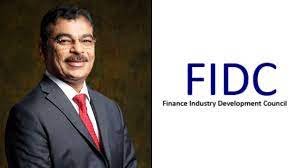Umesh Revankar Appointed as Chairman of FIDC
The Financial Institutions Development Council (FIDC) has recently announced the appointment of Mr. Umesh Revankar as its Chairman, marking a significant development in the financial sector. This move has garnered attention, especially among aspirants preparing for government exams, including those aspiring for positions in the banking and civil services sectors. In this article, we will explore why this news is important, provide a historical context, and present five key takeaways that students should keep in mind while preparing for their exams.

Why this News is Important
Appointment of a Key Figure: The appointment of Mr. Umesh Revankar as Chairman of FIDC is a crucial development because FIDC plays a pivotal role in the financial sector of India. Aspirants aiming for government exams in the banking, financial, or civil services sectors must be aware of the key figures and organizations shaping the country’s financial landscape.
Impact on Financial Policies: The Chairman of FIDC holds a significant position in influencing financial policies and regulations. This appointment can potentially lead to changes in policies that could affect the banking and financial sectors, making it essential for aspirants to stay informed.
Historical Context
The Financial Institutions Development Council (FIDC) is an important body in India’s financial sector. It represents non-banking finance companies (NBFCs) and plays a vital role in advocating for their interests and contributing to the growth and stability of the sector. Understanding the historical context of the FIDC is essential for grasping the significance of Mr. Umesh Revankar’s appointment.
The FIDC was established in 1951 and has since been working towards promoting the interests of NBFCs and facilitating their healthy growth. It engages with various stakeholders, including regulatory authorities, to ensure that the NBFC sector continues to contribute positively to India’s economy.
Key Takeaways from Umesh Revankar’s Appointment as FIDC Chairman
| Serial Number | Key Takeaway |
|---|---|
| 1. | Mr. Umesh Revankar has been appointed as the Chairman of the Financial Institutions Development Council (FIDC). |
| 2. | FIDC represents non-banking finance companies (NBFCs) in India and plays a vital role in advocating for their interests. |
| 3. | The Chairman of FIDC has a significant influence on financial policies and regulations in the country. |
| 4. | Aspirants preparing for government exams, especially in the banking and civil services sectors, should be aware of this development. |
| 5. | The FIDC has a history dating back to 1951 and has been instrumental in promoting the growth and stability of the NBFC sector in India. |
Important FAQs for Students from this News
Q1: Who is Mr. Umesh Revankar, and why is his appointment significant?
A1: Mr. Umesh Revankar is the newly appointed Chairman of the Financial Institutions Development Council (FIDC). His appointment is significant because FIDC plays a crucial role in India’s financial sector, and the Chairman influences financial policies.
Q2: What is the role of the Financial Institutions Development Council (FIDC)?
A2: FIDC represents non-banking finance companies (NBFCs) in India and advocates for their interests. It contributes to the growth and stability of the NBFC sector.
Q3: How does Mr. Umesh Revankar’s appointment affect government exam aspirants?
A3: Aspirants preparing for exams in banking, civil services, and related sectors should be aware of this development as it’s relevant to current affairs and can be part of their exam content.
Q4: Are there any historical events related to FIDC that candidates should know?
A4: Yes, the FIDC was established in 1951 and has a history of promoting the interests of NBFCs and contributing positively to India’s economy.
Q5: What is the connection between financial policies and the Chairman of FIDC?
A5: The Chairman of FIDC has a significant influence on financial policies and regulations in India, making their appointment a matter of importance in the financial sector.
Some Important Current Affairs Links

















